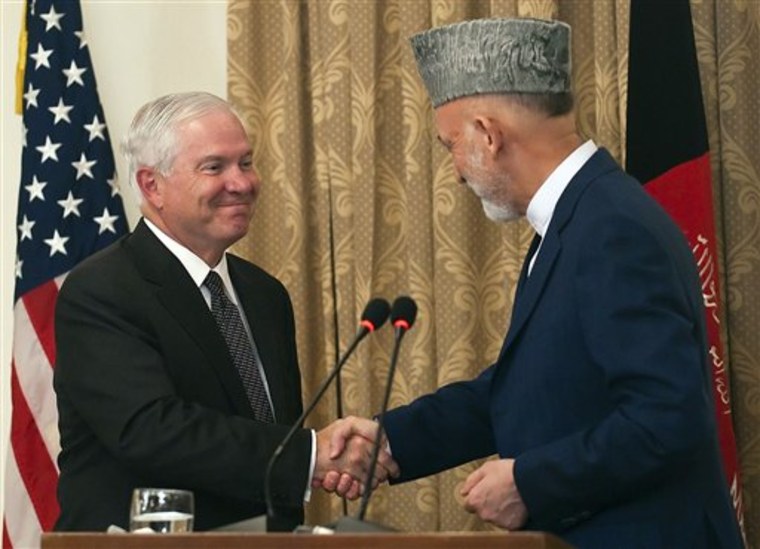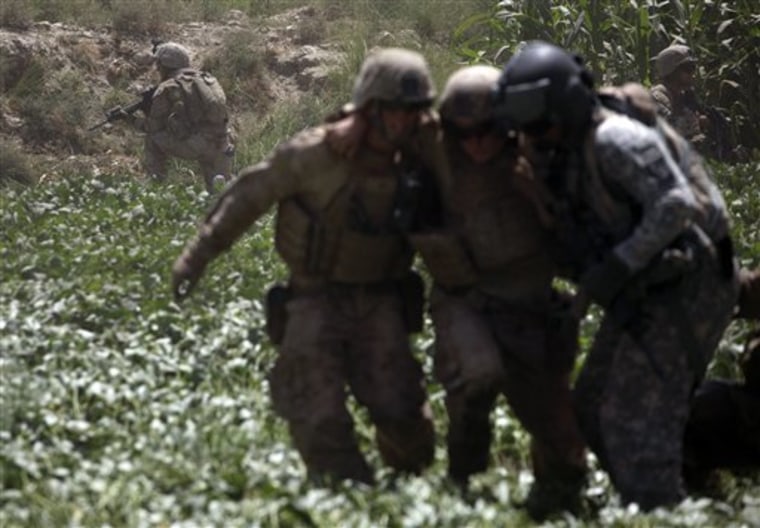As the last of 30,000 U.S. reinforcements arrive in Afghanistan, U.S. Defense Secretary Robert Gates on Friday got a firsthand look at operations in the dangerous south where Afghan and international troops are ramping up security.
Gates traveled to Kandahar province, a region where U.S., Afghan and NATO forces are trying to rout insurgents from their strongholds and bolster governance.
The Taliban are fighting back, waging a fear and intimidation campaign to keep local Afghans from siding with international forces and the Afghan government.
"You guys are in the forward foxhole and what makes a difference in the whole campaign is your success here in Kandahar city," Gates told U.S. troops at Camp Nathan Smith, headquarters for U.S. operations in the largest city in southern Afghanistan.
Gates spoke with a couple dozen U.S. service members in a courtyard ringed with heavily armored all-terrain vehicles designed to help them survive the homemade bombs that are the biggest death threat to coalition troops.
They were part of the 1st Brigade Combat Team, 4th Infantry Division, which arrived Aug. 18, and has already lost eight soldiers — seven last Monday alone in two separate explosions.
"Unfortunately, there are going to be more tough days ahead," Gates said. "You know that better than anybody."

One soldier asked Gates why the U.S. doesn't go after insurgents hiding in neighboring Pakistan.
The United States is pressing Islamabad to expand its pursuit of insurgents farther into North Waziristan, a border area next to Afghanistan often described as lawless.
"I think the likelihood of direct U.S. military engagement in Pakistan is very low," Gates said.
For the past 18 months, Pakistan has realized the importance of fighting insurgents on its soil and has effectively squeezed militant groups — in some cases, concentrating them in the border area of North Waziristan.
Pakistan sanctuaries 'a big problem'
U.S. officials are looking for assurances that Pakistan will not end its efforts there because of the demands created by this year's historic floods.
"Everyone understands that the sanctuaries on the other side of the border are a big problem" and the joint U.S.-Pakistan objective is to expunge those hideouts, Gates said. "Unfortunately the flooding in Pakistan is going to delay any operation in North Waziristan for some time."
Asked about the disbanding of private security companies, Gates told the soldiers some had been an issue.
President Hamid Karzai was trying to get a handle on these people who have basically free reign, including how they treat the Afghan people, Gates said.
"We need to keep some with static capabilities who can protect development projects that help the Afghan people," he said.
